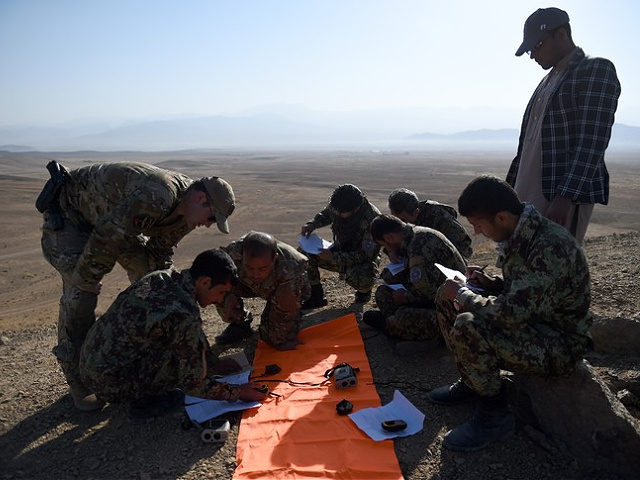The House approved a bipartisan bill this week to fast track special visas that would help Afghans facing reprisals for working alongside the departing U.S. military to migrate to America by waiving a required medical exam until after they enter the United States.
Approved on Tuesday by a 366 to 46 vote, the measure would waive the requirement for the tens of thousands of Afghans to undergo a medical exam in Afghanistan before they receive a Special Immigrant Visa (SIV), allowing them to fulfill the mandate after entering the United States, which is still combating the Chinese coronavirus pandemic.
“I can say with confidence that I might not be here today had it not been for these men and women,” Rep. Jason Crow (D-CO), a former Army Ranger who is the lead sponsor of the bill, reportedly declared.
Waiving the medical examination requirement would save the average applicant about a month on the lengthy and complex SIV process, long plagued by delays of six to seven years for some applicants.
“In combat and in a war zone, every hour matters,” Congressman Crow added. “A month will save many, many lives.”
Afghans who receive a special visa must undergo their examination within 30 days of entering the United States. The 30-day deadline was included in the legislation to alleviate the concerns of some House Republicans worried that waiving the medical examination requirement until the applicants enter the U.S. could lead to the spread of disease.
There are more than 18,000 Afghans, with over 50,000 family members caught up in bureaucratic limbo waiting to obtain a Special Immigrant Visa, available to Afghans who face reprisals by the Taliban and potentially other jihadis in Afghanistan because they worked for the U.S. military and government as interpreters, drivers, engineers, security guards, embassy clerks, fixers, contractors, and in other capacities.
“It is a life and death situation,” Rep. Brad Wenstrup (R-OH), one of the bill’s sponsors, declared about helping Afghans obtain a visa as soon as possible. “It’ll be a black eye on the United States if we don’t do everything in our power to protect these allies.”
Last Thursday, the Biden administration indicated that, before the looming American military withdrawal, the U.S. would evacuate the Afghans who helped the United States during the war and their families to third countries until SIVs for them and their families are processed.
“Those who helped us are not going to be left behind,” Biden told reporters as he embraced the “mass evacuation” proposed by a bipartisan group of lawmakers, possibly to the U.S. territory of Guam.
It is unclear which countries will take the Afghans. Some experts have accused Biden of failing to consider the fate of the Afghan allies before agreeing to a U.S. military withdrawal timeline, already in its final phases, forcing lawmakers to rush to help them.
The bill’s recent passage is the first in a series of bipartisan legislation to improve the lengthy and complex special visa process, long plagued by approval delays as long as six or seven years for some applicants.
On Wednesday, former U.S. Ambassador to Afghanistan Ryan Crocker told a Senate panel that Biden’s failure to address the fate of the Afghan allies sooner had made a “mass evacuation” the only option.
Crocker warned that there are “incredible problems” associated with extracting tens of thousands of Afghans as the American forces leave Afghanistan amid worsening security conditions.
According to Crocker, a “mass evacuation” would spark “a panic … in the population of Afghanistan and its security forces, and its government.”
It could also force some American troops to remain in the country to fill the vacuum left by the evacuated Afghans.
President Joe Biden agreed to withdraw U.S. military forces, except for a small residual force guarding the American embassy, by the upcoming anniversary of 9/11, which refers to the deadliest terrorist attack on American soil that triggered the Afghan war nearly two decades ago in October 2001.
The U.S. military withdrawal is reportedly weeks ahead of schedule — expected to conclude as early as the middle of next month.

COMMENTS
Please let us know if you're having issues with commenting.